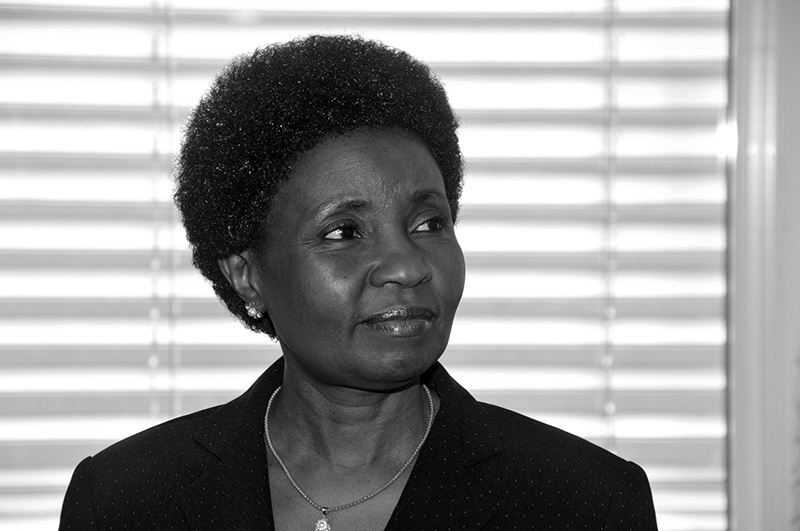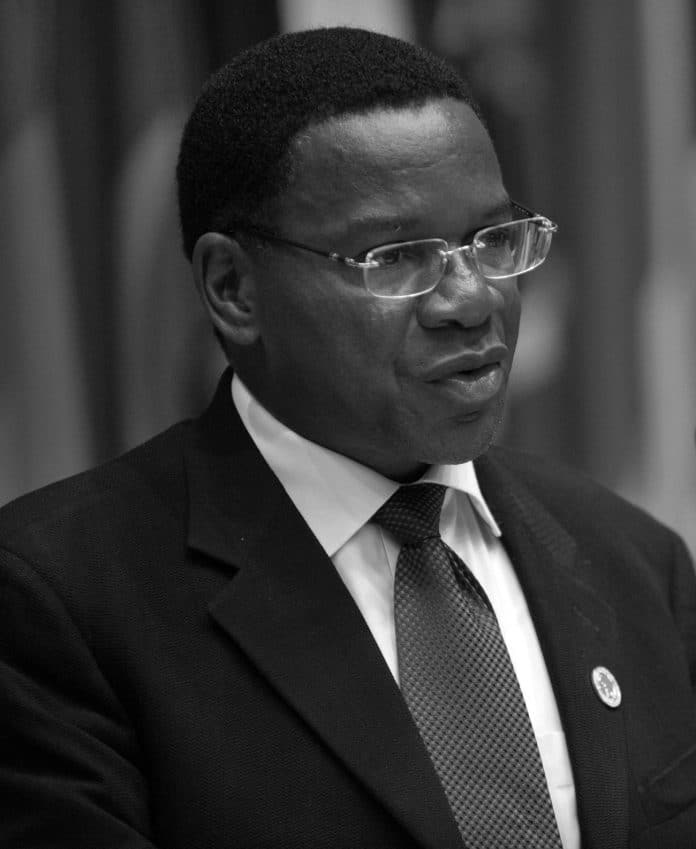Bernard Membe – Life, Education, Political Career, Honours and More
Bernard Membe (born November 9th, 1953) is a Tanzanian politician who belongs to the Alliance for Change and Transparency party. He served as Tanzania’s Minister of Foreign Affairs from 2007 until 2015. He also represented the Mtama constituency in the parliament between 2000 and 2015.
Education and Early Life
Bernard Membe attended Rondo-Chiponda Extended Primary School for his elementary education. He got his O Levels at Namupa Seminary Secondary School. He got his A-Levels at Itaga Seminary High School. He then studied political science at the University of Dar es Salaam. He also bagged a degree in international relations from John Hopkins University. Membe did a one-year national service at the Oljoro Military Camp located in Arusha Region.
Political Career
Bernard Membe began his career as a security analyst at the office of the Tanzania president between 1978 and 1989. Thereafter, he proceeded to study international relations at the John Hopkins University, Washington, D.C., from 1990 to 1992. He was assigned to work as an Adviser to the Tanzanian High Commissioner in Ottawa, Canada. He held this role from 1992 to 2000.
Bernard Membe was elected to represent the Mtama constituency on the platform of CCM in 2000. Membe won reelection in 2005 and 2010. President Jakaya Mrisho Kikwete made him Deputy Minister of Home affairs after the 2005 general elections. Following a cabinet reorganisation in October 2006, Membe was appointed Deputy Minister of Minerals and Energy.
Following Asha-Rose Migiro’s appointment as the Deputy Secretary-General of U.N. by the then Secretary-General of the body, Ban Ki-moon, Bernard Membe became the Minister for Foreign Affairs and International Cooperation. He has also been a member of CCM’s National Executive Committee since 2007. He was re-elected at the party’s 8th congress in Dodoma in 2012.

In January 2013, Bernard Membe informed his constituents that he wouldn’t be contesting for a seat in the upcoming parliamentary polls set to be held in 2015. This announcement fuelled speculations that he may be contemplating running for the presidency.
The central committee of the CCM threw Bernard Membe out of the party in February 2020. He was accused of indiscipline and flouting the ethics and constitution of the party. Membe denied any wrongdoing and explained that his expulsion was because he planned to stand for nomination as CCM’s presidential candidate.
Membe handed back his CCM membership card in July 2020. He joined the Alliance for Change and Transparency later that month. He declared that he was ready to stand as the party’s candidate in the 2020 presidential election.
Foreign Affairs Minister
In June 2008, Bernard Membe declared on behalf of three SADC countries that if the runoff election in Zimbabwe were held, it would be marred by injustice and violence. The ruling Zanu-PF’s Joram MacDonald Gumbo accused Membe of Bias. On September 2nd, he announced that Tanzania would prefer a 50-50 power-sharing agreement to avert the economic crisis in Zimbabwe.
During the International Day of Solidarity with the People of Palestine held in Dar es Salaam, Membe said Israel must stop illegal construction works in the occupied land, dismantle the separation wall, and stop the siege of Gaza. He also expressed dismay at Israel’s use of excessive force, noting that Palestinians fought with catapults and stones while the Israelis replied with disproportional force by using bombs and bullets. In October 2011, Bernard Membe emphasised that Tanzania fully backs Palestine’s bid to join the U.N.
In May 2011, he rebuffed BAE Systems’ decision to pay Tanzania the ex-gratia sum of GP£29.5 million through a charity. The sum in question was a result of the 2002 sale of an overpriced radar to Tanzania. Bernard Membe maintained that the charity wouldn’t be permitted to operate in Tanzania if the payment was to go ahead. He was quoted as saying, “They are seriously trying to absolve themselves of a corruption scandal and shift the responsibility to the government so that the world would believe Tanzania is a corrupt nation that can’t be trusted.”
In spite of Bernard Membe outburst that “They are seriously trying to absolve themselves of a corruption scandal and shift the responsibility to the government so that the world would believe Tanzania is a corrupt nation that can’t be trusted,” he has never openly condemned anyone in Tanzania for the BAE corruption scandal.
In March 2012, Edward Hosea, the Director-General of the Prevention and Combating of Corruption Bureau, who doubles as the most senior anti-graft officer in Tanzania, was said to have declared that there was no Tanzanian involved in the radar scandal. Although the growing level of corruption under Kikwete’s administration is well-documented, Hosea’s statement, as reported in the partly state-owned Daily News newspaper on March 31st, if factual, indicates an adamant unwillingness to address it. After Hosea’s statement, no comment was forthcoming from Bernard Membe.
The corrupt activities of the influential Mengi family in Tanzania, as well as the Silverdale Farm issue, blighted the Ministry of Foreign Affairs under Bernard Membe’s watch.
In 2004, British venture capitalists Sarah Hermitage and Stewart Middleton procured a 45-year lease to Silverdale and Mbono Farms, located in Kilimanjaro Region’s Hai District, from Benjamin Mengi. Benjamin is a brother to Reginald Abraham Mengi, the owner of IPP Media, who is a close ally of President Jakaya Mrisho Kikwete and Chairperson of the Tanzania Private Sector Foundation (TPSF).
A year after the deal, Benjamin Mengi wanted the lease cancelled, stating that he was yet to be paid fully. This was in spite of the fact that he signed a receipt for the money. When the venture capitalists refused, Mengi publicly stated in front of senior police officers that he’d drive out the investors from Tanzania by any means possible, “sliced to pieces in a casket, if need be.”
A 4-year campaign of harassment and violence was subsequently unleashed on the venture capitalists with the help of the judiciary and police as well as many institutions of the state. Benjamin Mengi was able to drive the investors out of Tanzania using the government ministers and judiciary to his advantage. His criminal conduct remained unchecked in spite of the personal guarantees of Bernard Membe and President Kikwete to the U.K. government that the rule of law would reign supreme in the case.
Sarah Hermitage was sued by Reginald Mengi for libel in a London High Court in October 2012 after Sarah claimed Reginald had used IPP Media to wage a campaign of journalist terrorism against her person and family as well as her Tanzanian staffers to aid his brother’s bid to take their investment.
Hermitage defended the case successfully. The judge declared that Mengi and his witnesses lied and misguided the court. Importantly, the court found him complicit in his brother’s illegal attempts to grab the investors’ property (the Silverdale & Mbono Farms lease).
Albeit on a small scale, the British venture capitalists involved in the Silverdale issue had the chance to offer truly long-lasting development in Tanzania and improve the living standard of the poor. Despite Bernard Membe’s vocal advertisement of Tanzania as an investment destination, the Silverdale Farm scandal casts a shadow of doubt on the claims. It shows the governance climate in Tanzania does not encourage private investment. It also doesn’t favour the well-being of Tanzanians, as Minister Membe did not condemn Reginald Mengi’s actions or his government’s inability to upload the laws of the land with respect to the investors’ legal rights.
On September 21st, 2011, Bernard Membe appeared on Shaka SSali’s Straight Talk Africa talk show. He was asked about Tanzania’s role in the overthrow of President James Mancham of Seychelles in 1977 and the subsequent rise to power of socialist Albert Rene; Membe answered by saying Rene asked for Tanzania’s help, and Tanzania didn’t hesitate to go all the way to transform the archipelago.
Chairman of the Executive Council of the Africa Union (AU)
As Minister of Foreign Affairs, Bernard Membe served as the chairman of A.U. ‘s Executive Council for a year when Tanzania took over the rotating chair of the organisation in January 2008. During his tenure, Guinea and Mauritania were suspended from the organisation after the 2008 Guinean coup and 2008 Mauritanian coup, respectively. Their delegates were prevented from attending the biannual summit in January 2009. Bernard Membe said, “There is no good or bad coup. A coup d’état is a coup d’etat, and it can’t be tolerated.” He also declared that the African Union was opposed to the indictment of President Omar Hassan Ahmad al-Bashir of Sudan by the International Criminal Court.
Lake Malawi Boundary Issue
In July 2012, Bernard Membe told his Malawian counterpart that gas and oil exploration on the eastern part of Lake Malawi (also known as Lake Nyasa) should stop immediately until the ownership of the lake is fully resolved. Tanzania insists that the international boundary runs through the centre of the lake. However, Malawi maintains the boundary is at the Tanzanian coast, citing the 1890 Heligoland-Zanzibar Treaty between the German Empire and the U.K. Government.
In December 2012, Bernard Membe presented a letter of application for intervention on Tanzania’s behalf to Joaquim Alberto Chissano, the chairman of the Forum of Former African Heads of State, asking the forum to intervene. He stated that the Christian Council of Tanzania and Malawi Council of Churches’ intervention came too late since the issue had already been taken to the African Forum.
For more articles related to Politics in Tanzania, click here!
































